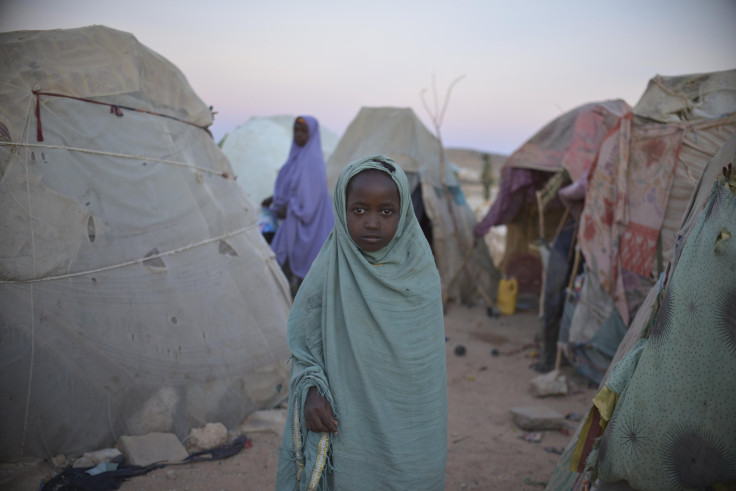Aid Or Abuse? Somalia’s Displaced Citizens 'Held Hostage' In Camps

Among the hundreds of thousands of people in Somalia displaced by conflict and famine, reports of abuse, rape and exploitation have surfaced within the government-run camps meant to protect them.
International advocacy group Human Rights Watch documents dozens of first-hand accounts of abuse in its latest report titled, “Hostages of the Gatekeepers,” which examines the conditions of camps for displaced Somalis in the capital Mogadishu.
According to interviews with 70 displaced Somalis, abuses have been perpetrated against camp residents by members of the state security forces, militia groups and individuals in charge of managing the camps known as “gatekeepers.”
“Instead of finding a safe haven from fighting and famine, many displaced Somalis who came to Mogadishu have found hostility and abuse,” said Leslie Lefkow, HRW’s deputy Africa director, in a statement.
Somalia has been immersed in civil war for over two decades, and a famine that peaked during the latter half of 2011 has further exacerbated the humanitarian crisis there, resulting in thousands of people fleeing their homes in the country’s south-central region to camps in Mogadishu.
In many of these camps, the so-called gatekeepers use force and intimidation through their ties with local militias and ethnic clans to keep displaced people in the camps to secure more humanitarian aid supplies, which they appropriate for their own benefit, according to the report. “They are not really able to leave. The gatekeepers who control the camps are themselves very abusive,” HRW’s UK director David Mepham told the BBC.
"They siphon off some of the international assistance that is intended for people in the camps -- people who are in many cases in serious distress, in serious need," he added.
Displaced women and girls have been particularly vulnerable to sexual violence and abuse at the hands of both security forces and the militias. The majority of these cases go unreported due to fear of reprisal and the stigmatization of rape victims.
“We don’t know anyone here; we are new to Mogadishu,” one father of an alleged rape victim told HRW. “So we didn’t try to go to justice, because the commander was harassing us at the time my daughter was raped. So how I can trust anyone here? We must keep silent.”
HRW estimates that there are between 180,000 and 370,000 displaced people living in Mogadishu’s camps, though it says figures are difficult to determine because the transitional government from 2010 to 2012 never registered them.
In August 2012, a new Somali government was formed with the aim of ending the internal conflict, but HRW has called on it to make its displaced citizens a priority.
“The new government should turn the page on the transitional government’s failures and provide accountable protection to the displaced, who are among Somalia’s most vulnerable citizens,” Lefkow said.
The Somali government plans to relocate all of the displaced people in Mogadishu by the end of August.
“The government faces daunting challenges, though it appears committed to tackling the dire situation of the displaced in Mogadishu,” Lefkow said. “But if the rights, needs and wishes of the displaced themselves are not addressed, then they are likely to face even more suffering and abuse.”
© Copyright IBTimes 2024. All rights reserved.





















